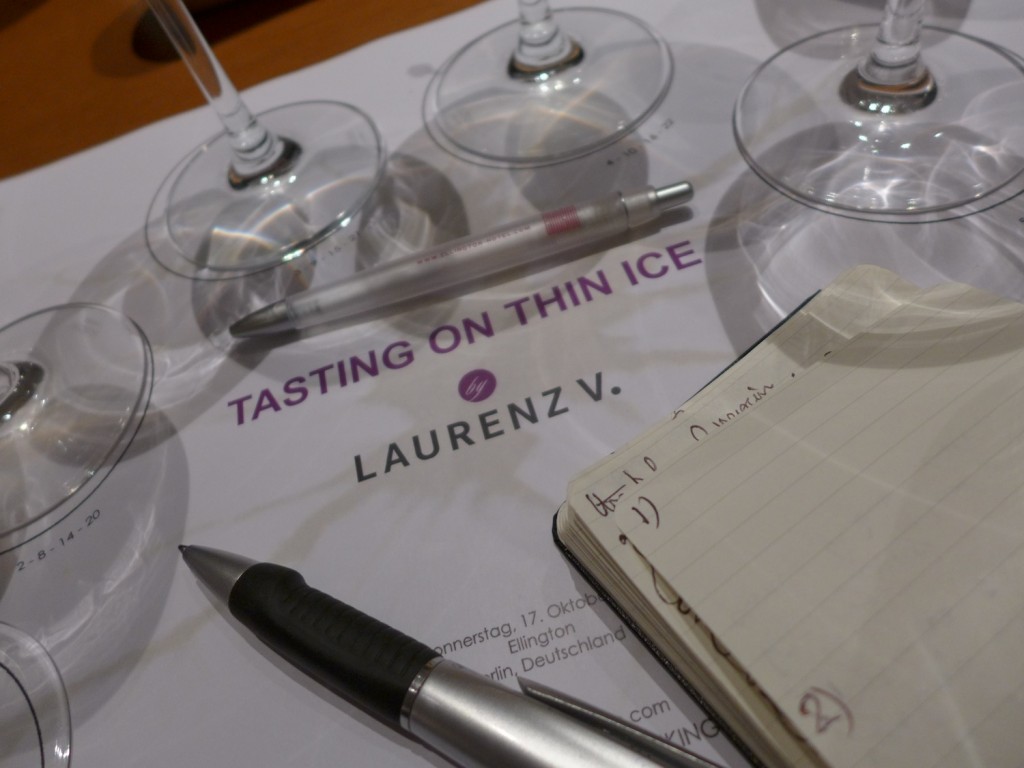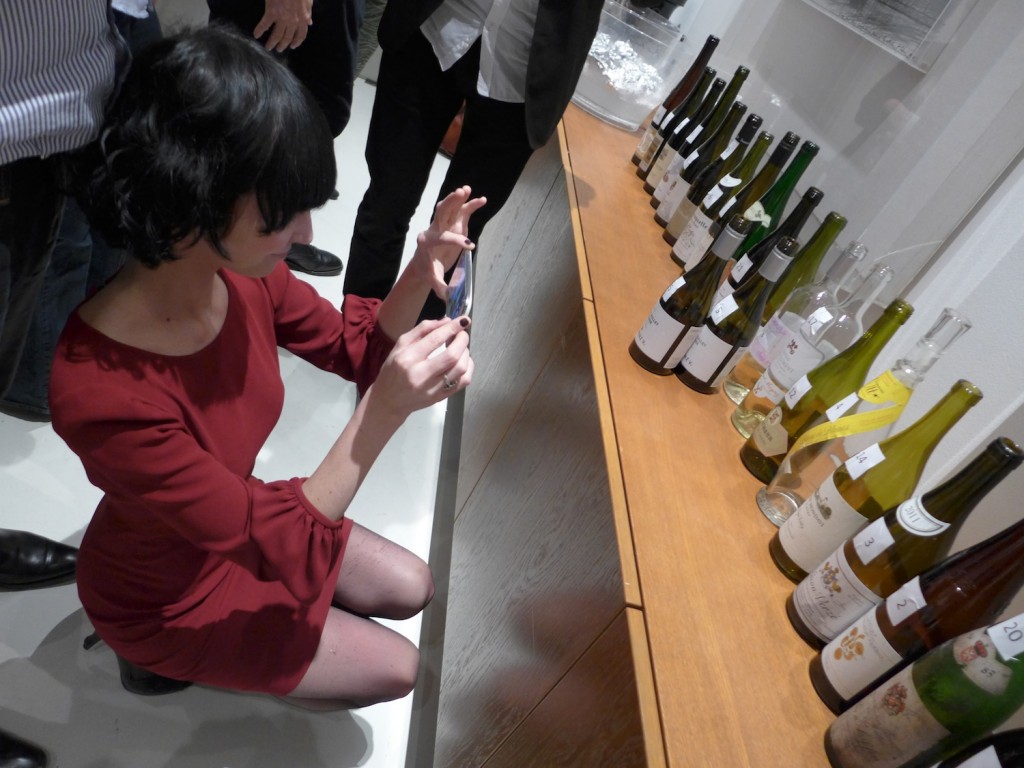 Yesterday evening was mad, bad and exciting all at once. When I arrived at the ‘Tasting on Thin Ice’ organized by Lenz Moser ( the man behind TxB Wine Imports in Germany and the globally distributed ‘Laurenz V.’ brand of Austrian Grüner Veltliner) at the Ellington Hotel in Berlin early yesterday evening I expected another interesting blind tasting. What I got was so startling that when I got home just before midnight I sat blankly in front of my computer. Normally when I feel the need to write I know almost exactly what I want to write. After yesterday’s tasting I knew I must be somebody, but I didn’t know who the hell I was!
Yesterday evening was mad, bad and exciting all at once. When I arrived at the ‘Tasting on Thin Ice’ organized by Lenz Moser ( the man behind TxB Wine Imports in Germany and the globally distributed ‘Laurenz V.’ brand of Austrian Grüner Veltliner) at the Ellington Hotel in Berlin early yesterday evening I expected another interesting blind tasting. What I got was so startling that when I got home just before midnight I sat blankly in front of my computer. Normally when I feel the need to write I know almost exactly what I want to write. After yesterday’s tasting I knew I must be somebody, but I didn’t know who the hell I was!
Blind tastings with a group of journalists and/or somms and/or wine lovers as the jury are a well established ritual of the wine scene and they takes place daily in the major metropoles (and a bunch of other places) around Planet Wine. First each taster assesses the wines alone in silence, then the results are collected and there is some kind of discussion of the results. This process is what interests me here, although the wines themselves were also fascinating. I shall write about them in my column in the FRANKFURTER ALLGEMEINE SONNTAGSZEITUNG on Sunday, October 27th, to read which you either have to buy the newspaper or tune to this channel for an english language summary of the column.
Yesterday evening’s tasting was basically trying to answer the question, “which are the best dry white wines in the world?” Of course, Lenz Moser included a couple of his own Grüner Veltliners, but we’re talking about three wines of 24. Apart from them there was an enormous diversity of dry whites from right around the globe including Rieslings, Chardonnays, Sauvignon Blancs, and, and, and. Possibly that stylistic richness made the results more “crazy” than they otherwise would have been, but maybe not. Now I have to explain what I mean by “crazy”. Often at this kind of blind tasting a list of scores is collected from each taster at the end, but this time we each had to say our scores out loud. One of the team who organized the tasting would call out the number of a wine, then, beginning with me, each of us had to say what our score was. In this way everybody got to find out how much or little each of us liked every one of the 24 wines, and the divergence of opinions was as great at the distance to the next star; light years!
We used the 20 points scale at Lenz’s request, and to give an idea of that divergence of opinions there was one wine which received the maximum 20 points from one taster and just 9 of 20 possible points from another. Two other wines much liked by the majority of tasters received scores of 6 and 7 points from two others. Traditionally scores under 10 of 20 points indicate faulty wines, and those tasters seemed to be aware of that. I was expecting a couple of the more extreme wines to divide opinion, but not to the point of some tasters giving just 5 points, or in one instance 1 point, “for the glass of the bottle!” he added when saying his score. In fact, it hailed low numbers and such comments the entire time our scores were being collected. Already I was wondering what the average of 20 and 9 points actually says about the wine and asking myself why my friend the economist Karl Storchmann wasn’t there to do a statistical analysis of these results.
Then it hit me. People like Lenz Moser, my colleague Jens Priewe and I – we sat in a row on one side of the table – belong to a particular generation which was brought up to approach wine in a systematic and even-handed manner. On the other side of the table the tasters who shot all those low scores straight from the hip were much younger than us living fossils. I know I’ve got a reputation for being a Wine Punk and not without reason, but I was brought up with the spirit of fair play (justice and equality!) and to feel a professional responsibility to do my research thoroughly and tell the story how it really was (at least for me). I’m not saying that the young tasters who sprayed those low scores around don’t understand or appreciate such things, rather that they have a completely different attitude to wine and this will change everything.
PS Now I must get back to the manuscript of BWWOE – The Riesling Book, because a bad cold I caught in Venice or on the Orient Express slowed me down badly this week. Today and tomorrow I must catch again!


![120114_riesling_global_RZ [1600x1200]](http://www.stuartpigott.de/wp-content/uploads/2013/10/120114_riesling_global_RZ-1600x12002.jpg)